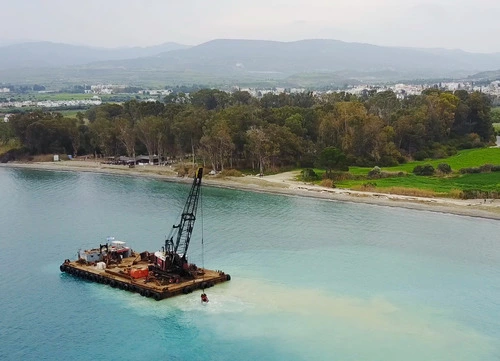
On November 20, 2023, a panel of the Ninth Circuit Court of Appeals issued its opinion in Idaho Conservation League v. Poe, No. 22-35978. Therein, the Court upheld its previous interpretation of “discharged” in the context of an allegation that a party violated the National Pollutant Discharge Eliminating System (NPDES) permit system under the Clean Water Act. It did so notwithstanding the defendant’s allegation that Supreme Court precedent overruled that interpretation. As a result, dredging material from the bottom of a riverbed and then discharging that material into the river still qualifies as “discharging” a pollutant under the Clean Water Act and requires a NPDES permit.
In Poe, the defendant engaged in instream suction dredge mining in Idaho’s South Fork Clearwater River (South Fork). Plaintiff argued that the dredge mining qualified as discharging (i.e., adding) pollutants to the South Fork and thus required a NPDES permit. The district court granted summary judgment to plaintiff, agreeing that defendant added pollutants to the South Fork and holding that defendant’s mining process required a NPDES permit rather than a section 404 permit (a permit for dredged or filled material under the Clean Water Act).
The Ninth Circuit started its analysis by reviewing the applicable circuit precedent, Rybachek v. EPA, 904 F.2d 1276 (9th Cir. 1990). In that case, the Ninth Circuit deferred to the Environmental Protection Agency’s (EPA) regulations which held that discharges from placer mining sluice boxes required a NPDES permit. The Court agreed that “resuspension” of streambed material may be interpreted as the addition of a pollutant. In the case at hand, the Court held that defendant’s mining fell squarely within the scope of Rybachek (which was not debated by defendant).
Defendant argued that the Supreme Court had overruled Rybachek twice, agreeing with the “commonsense” interpretation that discharging required adding something to the streambed that was not there before the defendant’s actions. The two cases relied upon by defendant were S. Fla. Water Mgmt. Dist. v. Miccosukee Tribe of Indians, 541 U.S. 95 (2004) and L.A. Cnty. Flood Control Dist. v. Nat. Res. Def. Council, Inc., 568 U.S. 78 (2013). The Ninth Circuit held that those two cases were distinguishable, as they both solely involved transferring water from one part of a waterbody to another. Here, since the defendant took materials that were on the riverbed and suspended them in the water, that was sufficient to qualify as a discharge/addition.
Defendant also requested that the Court overrule Rybachek on the basis that the definition of addition under the Clean Water Act is clear. The Ninth Circuit also denied this request, holding that the case and definition were not “clearly irreconcilable,” which is the standard for a three-judge panel to overrule precedent.
In the alternative, defendant argued that his actions should require a section 404 permit rather than a NPDES permit, making the Army Corps of Engineers (Army Corps) the relevant administrative body. The Court then looked at the definitions of dredged and filled material under the Clean Water Act and its regulations and held that neither address whether defendant’s actions qualify. It then turned to agency interpretation and held that both the EPA and Army Corps have agreed that once dredged materials are processed (as they are under defendant’s process), the NPDES permit system applies. The Ninth Circuit deferred to these interpretations to hold that defendant’s section 404 argument failed.
As a result, the Ninth Circuit affirmed summary judgment in favor of plaintiff, holding that defendant’s operations required a NPDES permit and he was operating without one in violation of the law.
- Associate
Alex Van Roekel provides counsel to clients on state and federal water law issues, including compliance with statutory and regulatory requirements, litigation strategy in both state and federal court and public policy within the ...
California Water Views provides timely and insightful updates on the water sector in the state. We relay information on how water legislation and policy from the nation’s capital, Sacramento, and around the U.S. affect California’s water utilities, agencies, practitioners, and consumers. We also write about important events, conferences, legal cases, and other key happenings involving all things water in and around California.
Stay Connected
 RSS Feed
RSS Feed
Categories
- Artificial Intelligence
- Bonds
- Clean Up of Groundwater & Contaminated Media
- Climate Change
- Coastal Development
- Construction
- COVID-19
- Dam Construction, Operation & Removal
- Desalination
- Environmental Protection Agency
- Events
- Government Administration
- Groundwater Management & SGMA
- Inverse Condemnation & Regulatory Takings
- New Legislation
- Oceans, Marine Life & Maritime Transportation
- Project Construction
- Projects
- Public Agency Regulation
- Recycled Water
- Regulatory Reform & Proposed Rules
- Right to Take
- State Budgets
- Valuation
- Water Infrastructure
- Water Litigation
- Water Quality
- Water Rights
- Water Supply
- Water Utility Regulation

